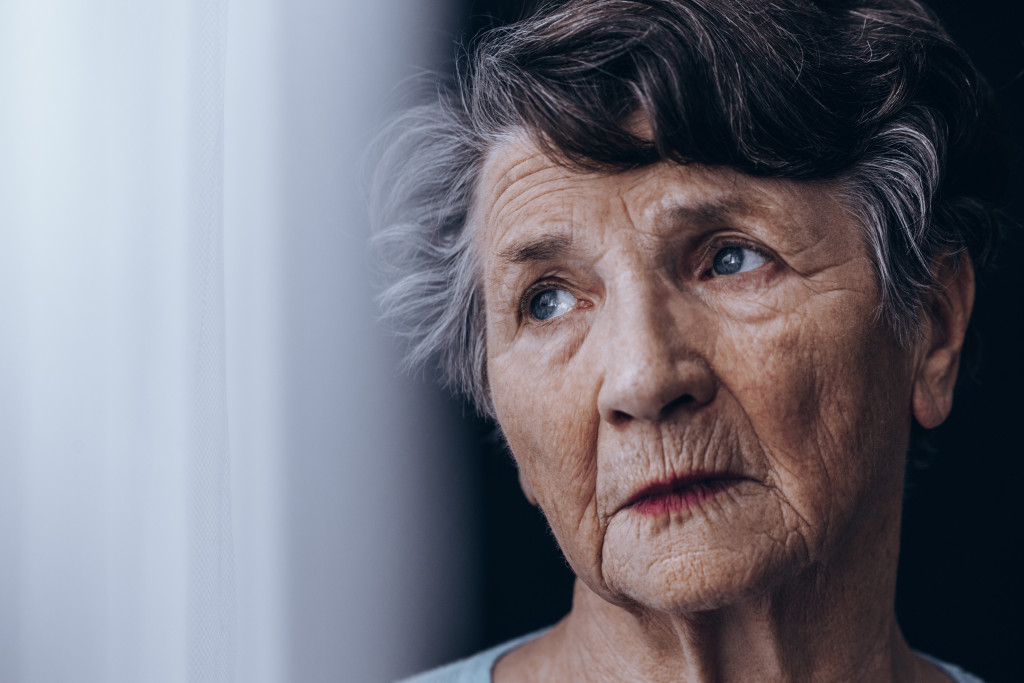- Parkinson’s disease is a chronic neurological condition affecting seniors’ mobility, daily activities, and communication skills.
- The disease places a significant emotional and caregiving burden on both the patient and their caregivers.
- Regular physical activity, a balanced diet, and alternative communication methods can alleviate Parkinson’s symptoms.
- Mental health should be prioritized, with therapy, relaxation techniques, and enjoyable activities recommended.
- Support and education are key to managing Parkinson’s and ensuring quality of life for seniors and caregivers.
Parkinson’s disease is a chronic, progressive neurological condition that affects the body’s movement and coordination. Individuals with Parkinson’s may experience tremors, stiffness, and difficulty with balance and posture. Although the disease can affect individuals of all ages, it typically manifests in seniors, often after the age of 60.
Living with Parkinson’s can be challenging for those affected, and it can significantly impact an individual’s quality of life. This post aims to provide an overview of the ways Parkinson’s disease can affect the lives of seniors and offer suggestions for how to manage the symptoms.
What is Parkinson’s?
Parkinson’s disease is caused by the loss of dopamine-producing cells in the brain. Dopamine is a chemical that helps transmit messages between nerve cells, and its depletion leads to a disruption in communication within the brain. This lack of dopamine results in the characteristic symptoms of Parkinson’s disease.
How Does Parkinson’s Affect Seniors?
There are various ways Parkinson’s can affect seniors’ lives. Here are some of those ways:
1. Difficulty with Daily Activities
Parkinson’s disease often manifests in difficulties with completing daily activities. Seniors may struggle with tasks such as dressing, bathing, and eating due to muscle stiffness and tremors. As a result, many seniors with Parkinson’s may require assistance with their daily activities. Caregivers or family members may need to help seniors with everyday tasks to ensure their safety and well-being.
2. Mobility Challenges
Another common issue among seniors with Parkinson’s is mobility challenges. The loss of coordination and balance that comes with Parkinson’s disease can lead to falls and an increased risk of injury. Mobility or walking aids such as canes, walkers, or wheelchairs may be needed to help individuals with Parkinson’s safely move around their homes and communities.
3. Difficulty Communicating
Parkinson’s disease can also affect a senior’s ability to communicate. Individuals with Parkinson’s often experience difficulty speaking loudly and clearly or may struggle to find the right words. This can lead to frustration and social isolation. Alternative forms of communication like speech therapy or assistive technology may be helpful for seniors with Parkinson’s to maintain their social connections.
4. Emotional and Mental Health Issues
Living with Parkinson’s disease can be emotionally challenging for seniors. As Parkinson’s progresses, seniors may experience depression, anxiety, or other mental health issues. It’s important to seek mental health treatment if seniors are struggling with these conditions to maintain their overall well-being.
5. Caregiver Burden
Finally, Parkinson’s disease can place a significant burden on caregivers or family members. Seniors with Parkinson’s often require additional support and care, which can be challenging for family members who are balancing their own needs and responsibilities. Seeking out caregiver support groups or respite care options can help alleviate this burden and ensure that both seniors and their caregivers are well-supported. If you’re struggling to take care of your grandparents, it might be better to hire an in-home care service. They can provide personalized care to help seniors maintain independence while managing their symptoms.
Proactive Ways to Manage Parkinson’s Symptoms
While there is currently no cure for Parkinson’s disease, there are ways to manage and alleviate the symptoms. Here are some proactive strategies for seniors with Parkinson’s:
Stay Physically Active

It’s important to continue moving and exercising to maintain muscle strength, flexibility, and balance. Low-impact activities such as walking, swimming, and yoga can benefit seniors with Parkinson’s.
Eat a Healthy Diet
A healthy diet can help improve overall well-being and even alleviate some Parkinson’s symptoms. Seniors should eat a balanced diet of fruits, vegetables, whole grains, and lean proteins.
Seek Support and Education
Knowledge is power when it comes to managing Parkinson’s disease. Seniors and their caregivers can benefit from seeking out support groups and educational resources to understand the condition better and learn coping strategies.
Communicate Effectively
Seniors with Parkinson’s may need to find alternative ways of communicating effectively. This can include speaking slowly, using visual aids or gestures, and using assistive technology.
Prioritize Mental Health
Maintaining mental health is crucial for seniors with Parkinson’s disease. This can involve seeking therapy, practicing relaxation techniques, or engaging in enjoyable activities to reduce stress and anxiety.
Parkinson’s disease can significantly impact the lives of seniors. However, by understanding the ways the condition can affect daily life and implementing proactive strategies to manage symptoms, seniors with Parkinson’s can continue living fulfilling and independent lives. If you or a loved one is struggling with Parkinson’s disease, remember that there are resources and support available to help navigate this journey.

